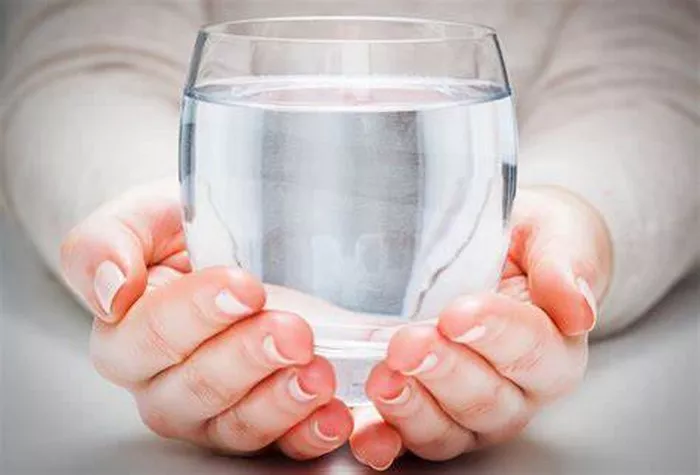When it comes to hair growth, various factors play a crucial role, including genetics, diet, and overall health. Among these, hydration is often overlooked, yet it is fundamental for maintaining healthy hair. This article explores the connection between drinking water and hair growth, examining how proper hydration can impact hair health and growth.
Understanding Hair Structure
Before diving into the benefits of water for hair growth, it’s essential to understand the basic structure of hair.
Hair Composition
Hair is primarily composed of a protein called keratin. Each strand of hair consists of three layers:
Cuticle: The outer layer that protects the inner layers.
Cortex: The middle layer that contains the majority of the hair’s protein and moisture.
Medulla: The innermost layer, which is not present in all hair types.
The Hair Growth Cycle
Hair goes through a natural growth cycle, consisting of three main phases:
Anagen (Growth Phase): This is the longest phase, where hair grows actively.
Catagen (Transition Phase): This phase lasts a few weeks, during which hair stops growing and prepares to shed.
Telogen (Resting Phase): In this phase, hair rests before it eventually falls out, making way for new growth.
Understanding these phases helps clarify how external factors, including hydration, can influence hair health.
See Also: Is Silicone Bad for Curly Hair? Unpacking the Myths and Facts
The Role of Water in Hair Health
Hydration and Hair Growth
Water is essential for various bodily functions, including nutrient transportation, waste removal, and temperature regulation. Hydration directly affects hair growth in several ways:
Promotes Blood Circulation: Proper hydration improves blood flow to the scalp, ensuring that hair follicles receive the nutrients they need for healthy growth.
Maintains Moisture Balance: Hair, like skin, requires moisture to remain healthy. Adequate hydration helps keep the hair shaft moist, reducing the risk of dryness and breakage.
Supports Cellular Function: Every cell in the body needs water to function optimally, including hair follicles. Adequate hydration supports the metabolic processes necessary for hair growth.
Symptoms of Dehydration and Their Impact on Hair
Dehydration can manifest in various ways, including dry skin, fatigue, and reduced hair quality. Symptoms specifically related to hair health include:
Dry, Brittle Hair: Lack of moisture can lead to dry, frizzy hair that is prone to breakage.
Slow Growth: Dehydration can slow down the hair growth process, making it difficult for hair to reach its full potential.
Increased Shedding: Insufficient hydration can lead to increased hair loss, as follicles may become weaker and less able to hold onto hair strands.
The Science Behind Hydration and Hair Growth
Studies on Water Intake and Hair Health
While direct studies specifically linking water intake to hair growth are limited, existing research highlights the importance of hydration for overall health, which indirectly affects hair growth. For example:
A study published in the Journal of Clinical and Aesthetic Dermatology found that dehydration negatively impacts skin health.
Since the scalp is part of the skin, maintaining hydration is likely beneficial for the scalp and hair follicles.
Another study in Nutrients emphasized the importance of water in nutrient absorption, which is crucial for hair growth.
Electrolytes and Hair Growth
In addition to water, electrolytes play a vital role in maintaining hydration levels in the body. Electrolytes, such as sodium, potassium, and magnesium, help regulate fluid balance, support nerve function, and promote healthy cellular activity. Adequate levels of electrolytes are essential for optimal hair health.
How Much Water Should You Drink?
General Recommendations
While the specific amount of water needed can vary based on individual factors such as age, sex, and activity level, general guidelines suggest:
For Men: About 3.7 liters (or 13 cups) of total water intake per day.
For Women: About 2.7 liters (or 9 cups) of total water intake per day.
Listening to Your Body
It’s essential to listen to your body’s signals. Thirst, dry mouth, and dark urine are indicators that you may need to increase your water intake. Aim for clear or light-colored urine as a sign of proper hydration.
Additional Tips for Promoting Hair Growth
While drinking enough water is crucial for hair growth, combining it with other healthy habits can enhance results:
Balanced Diet
Eating a diet rich in vitamins and minerals, such as:
Vitamin A: Supports sebum production, which keeps hair moisturized.
B Vitamins: Promote healthy hair follicles and prevent hair loss.
Vitamin E: Acts as an antioxidant, protecting hair from oxidative stress.
Zinc and Iron: Vital for healthy hair growth.
Regular Scalp Care
Maintaining a healthy scalp is crucial for hair growth. Regularly massage your scalp to improve blood circulation and use gentle shampoos to avoid stripping natural oils.
Avoiding Excessive Heat and Chemicals
Minimize the use of heat-styling tools and harsh chemical treatments, as they can lead to dryness and damage. When necessary, always use heat protectants.
Stress Management
Chronic stress can negatively impact hair health, leading to hair loss. Incorporate stress-reducing activities like yoga, meditation, or exercise into your routine.
Conclusion
Drinking water is essential for overall health and plays a significant role in promoting healthy hair growth. While it may not be a magic solution for hair loss, proper hydration supports various bodily functions that indirectly contribute to hair health. Combine adequate water intake with a balanced diet, regular scalp care, and healthy hair practices to maximize your hair’s potential for growth and vitality. By prioritizing hydration and maintaining healthy habits, you can achieve beautiful, resilient hair.
You Might Be Interested In
- Can Split Ends Be Repaired? Understanding Hair Health and Care
- Does Longer Hair Look Thinner? Unraveling the Myths and Facts
- Does Long Hair Make You Look Older? Debunking the Myths


